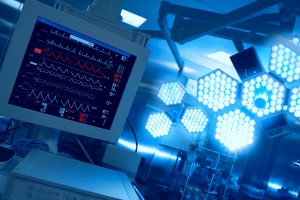
In the past, we blogged about biodegradable stents; and years later here we are again with the exciting topic back in the news! The way heart disease is treated is seeing promising advancements with Absorb, a fully-dissolving biodegradable stent recently approved by the Food and Drug Administration. The stent, manufactured by Abbott Vascular, gives doctors and patients a new alternative to permanent, metal stents in treating coronary artery blockages that may cause heart attacks or chest pain. Coronary artery disease (CAD) is one of the leading causes of death worldwide, and affects an estimated 13 million people in the United States.
Similar to biodegradable sutures, bone screws and other absorbable medical devices, the stent is absorbed by the body within two to three years of placement, allowing the artery to return to a more natural state. Once the stent is fully dissolved, four small platinum markers are left so doctors can identify where the stent was originally implanted. According to information on Cardiovascular Disease News, Absorb is a mesh tube made from a biodegradable polymer called poly(L-lactide) and contains the drug everolimus, which helps limit the growth of scar tissue and has been approved to treat certain cancers.
Metal stents have been used for over 40 years; and in the United States 850,000 people have one implanted every year. Absorb could appeal to patients who do not want to commit to a foreign object permanently implanted in the body; and no metal in the implant could reduce the risk of future blockages. In addition, the mesh stent allows for the arteries to pulse and flex naturally, which also helps prevent the risk of future blockages.
Clinical studies on approximately 2,000 individuals showed Absorb was safe and clinically comparable to metal stents. However, there are still questions about the benefits of Absorb, and any reports on long term advantages are not expected until 2020.
The stent is already sold in over 100 countries, and over 125,000 patients have had Absorb implanted. Abbott Vascular will continue to research new and better treatment approaches for CAD, which causes approximately 370,000 deaths a year in the United States. And with all of the exciting new advancements in the medical world one thing is for certain: the future for medical devices and research continues to look promising in solving some of the world’s greatest medical problems.
We welcome your questions about medical device testing and invite you to contact us to discuss your analytical needs.
